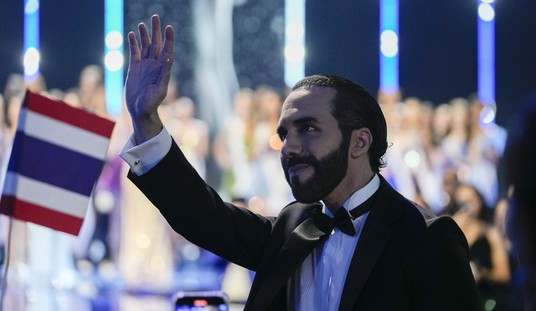Not exactly but close enough. Second look at Romney?
Mitt Romney is mining the George W. Bush White House for legal talent to advise his presidential campaign — including a key person behind the controversial Justice Department memos authorizing waterboarding and other “enhanced interrogation techniques.”
On Tuesday, Romney released a list of the 63 lawyers on his Justice Advisory Committee, designed to advise his presidential campaign on legal policy and in some cases provide legal counsel. Its most famous name: former Ronald Reagan Supreme Court nominee Robert Bork, whose nomination was voted down by the Senate…
Prime among [the others] is Steven Bradbury, one of 13 “prominent lawyers” singled out on the list by Romney’s campaign. Bradbury led the Justice Department’s Office of Legal Counsel from 2005 to 2009 and signed three 2005 memos reassuring the CIA and the DOJ that techniques like waterboarding were legal even when combined with another harsh technique.
I’m already looking forward to the first Obama/Romney debate, where The One will scold Mitt for using lawyers who have contempt for due process before trumpeting his own shoot-on-sight drone policy. As for Mitt, consider this part of his current stealth strategy, in which he spends most of his time fundraising and rolling out occasional big-name endorsements in lieu of stumping for media attention. Supposedly that’s going to change soon, but it’s working, sort of, so far: Rasmussen’s latest still has him in front among likely voters with 22 percent to Perry’s 18 and Bachmann’s 17. What would happen in a three-way race between them? Romney wins that too — or does he?
In a three-way race between Romney, Minnesota Congresswoman Michele Bachmann and Texas Governor Rick Perry, Romney earns 34% of the vote, according to a new Rasmussen Reports national telephone survey of Likely Republican Primary Voters. Bachmann picks up 27% support, while Perry, the only one who has yet to formally declare he’s a candidate, gets 26%. Five percent (5%) like some other candidate, and eight percent (8%) are undecided.
The race is a virtual tie, however, if it’s a two-way race. In a showdown between just Romney and Bachmann, 44% of primary voters support Romney, while 42% favor Bachmann. The remaining 14% either like another candidate or are undecided.
Pit Romney against Perry alone, and the former Massachusetts governor earns 43% while the Texas governor gets 39%. Nine percent (9%) prefer another candidate, while another nine percent (9%) are undecided.
He does better against both Perry and Bachmann in a two-way race than I’d expect given that they’re both tea-party favorites and combine for 61 percent in the three-way match-up. Three problems, though. One: Romney’s better known than both of them thanks to his ’08 run and the months of buzz he’s gotten this year for being the default frontrunner. That has to be boosting his numbers a little. Two: No one’s hit him yet. Plenty of primary voters who don’t follow politics day to day are still blissfully unaware of RomneyCare. Perry’s already promising that “There will be plenty of vinegar and whatever else needs to be in the recipe” once he gets in, and Bachmann’s bound to start attacking more once she’s done concentrating on Ames. What happens to Mitt’s numbers then? Three: Given the make-up of the rest of the field, which way are those undecided and “other candidate” voters likely to break if forced to choose between Romney and a tea partier? True, you’ve got some Pawlenty fans mixed in there, but you’ve also got many more Palin and Cain and Paul fans. Who’s a more natural fit for them, Perry/Bachmann or the architect of the individual mandate in Massachusetts?
Exit question: How come Romney took a beating for waffling on the debt negotiations but not Perry?








Join the conversation as a VIP Member